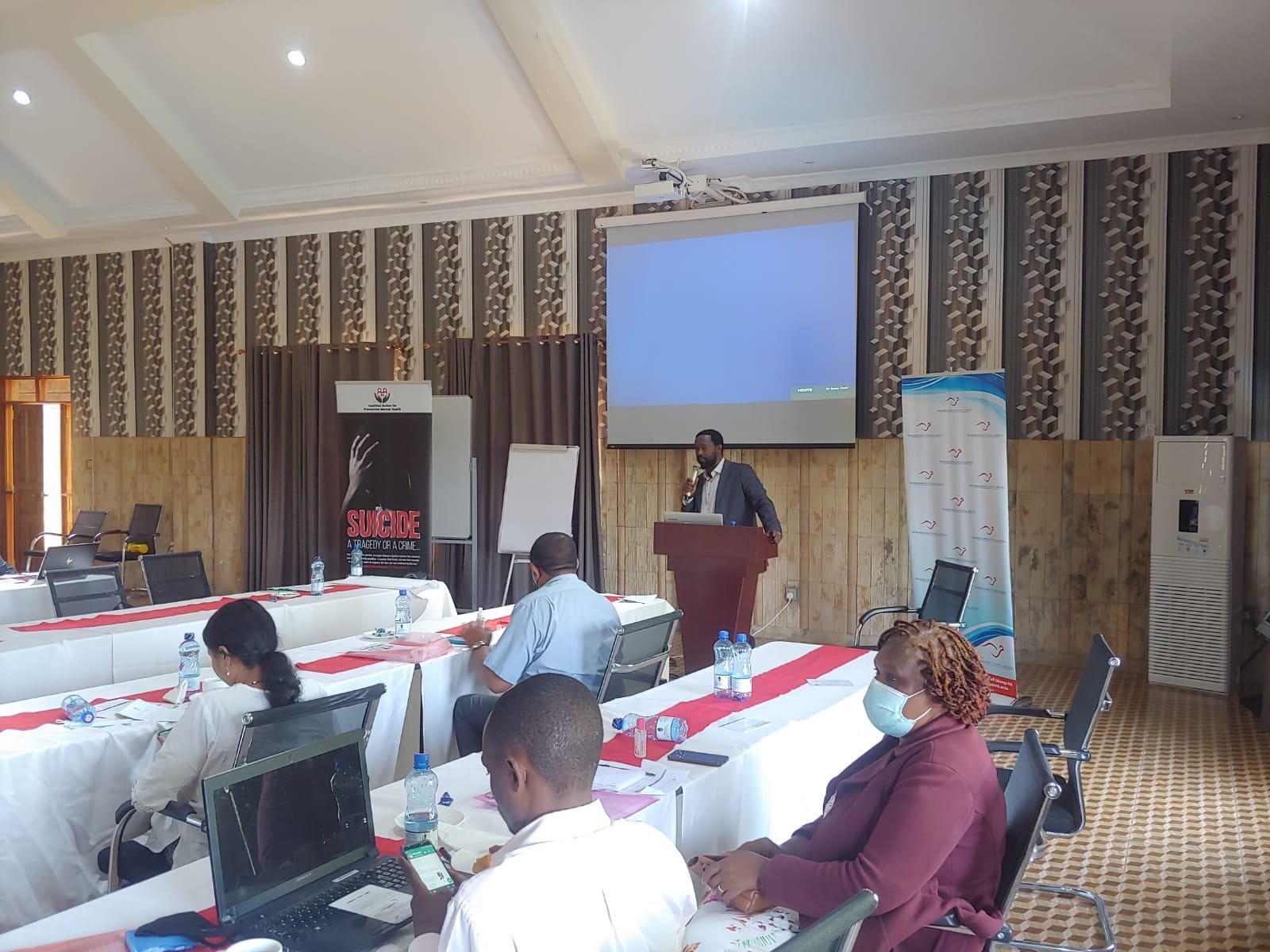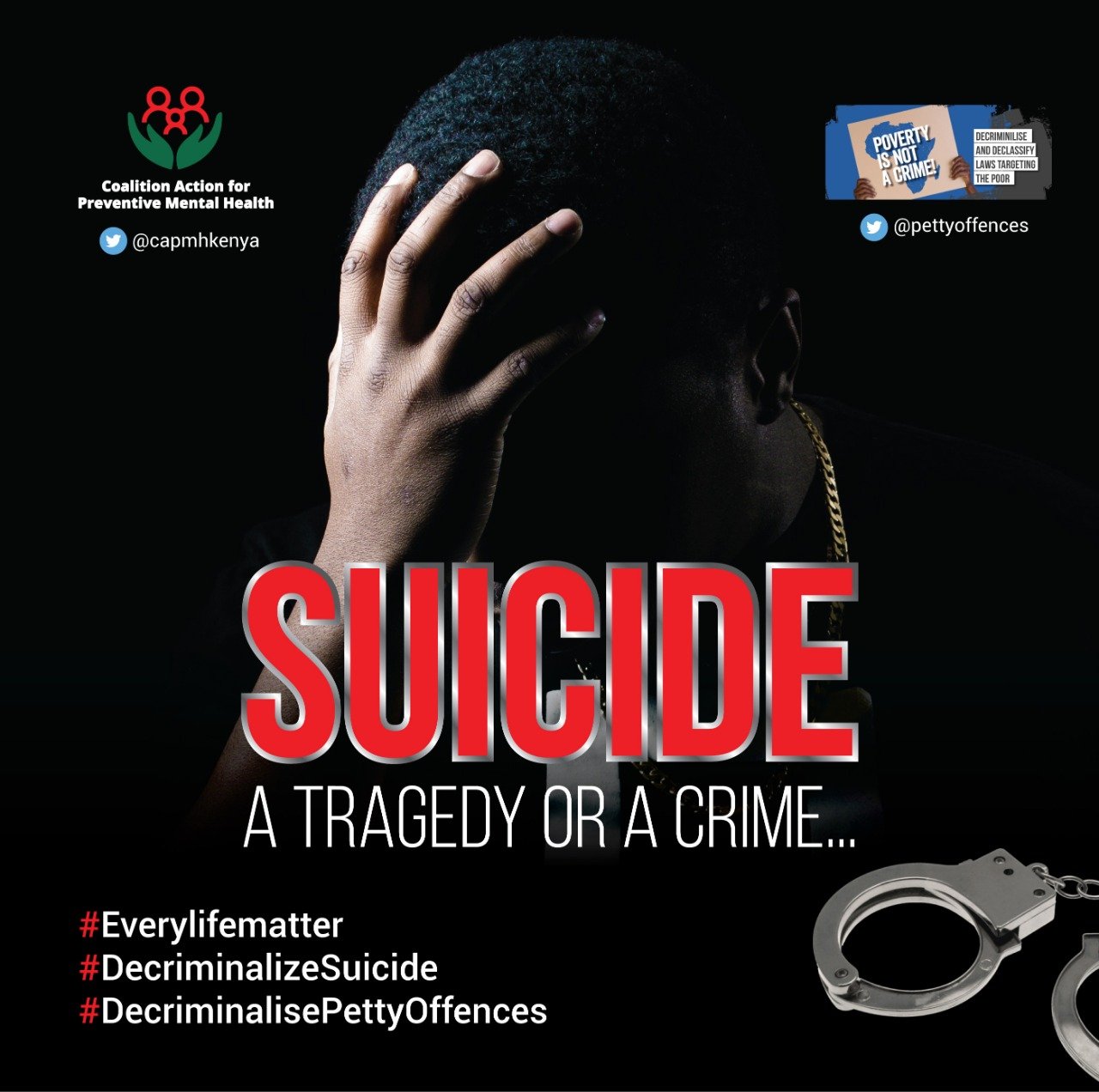Leading the fight for suicide decriminalisation in Kenya
By Mathew Mutiso, Executive Director and Founder of the Coalition Action for Preventative Mental Health, Co-Chair, Global Mental Health Action Network Finance working group.
Mathew Mutiso, Founder of the Coalition Action for Preventative Mental Health Kenya (CAPMHK)
There has been great leaps and strides towards investments in mental health in Kenya in the last four years. In June 2019, the outgoing President H.E President Uhuru Kenyatta’s Madaraka Day speech remarkably said: “Depression has today become a common phenomenon and it affects persons from all walks of life and ages.“
This triggered a series of events including the formation of a Mental Health task force. A key recommendation of the report was to declare mental illness a National Emergency of epidemic proportions.
Away from the public eye and embedded in this emergency was an increase in suicide deaths and attempts. In Kenya, attempted suicide as laid out by Section 226 of the Penal Code is a misdemeanour punishable by two years’ imprisonment or a fine or both, as per Section 36 of the Penal Code.
Persons with intellectual and psychosocial disabilities arrested for attempted suicide have been detained at Mathari Mental Hospital without trial for prolonged periods, exceeding the penalty for the offence under the Penal Code.
The origins of the criminalization of suicide in countries like Kenya is a legacy of the colonial era. Just like a case in multiple Commonwealth countries and often very old laws. Therefore, this legislation is not based on what is needed for each country but rather what was imposed by an outside force.
Under our thematic area of strategic litigation CAPMHK is enjoined as amicus in a petition filed by the Kenya National Human Rights Commission for the decriminalisation of suicide. Concurrently, since the beginning of the year, CAPMHK has been doing advocacy and public awareness campaigns on decriminalisation of suicide throughout the country. We are engaged in community-based advocacy on social media, webinars and tweet chats, by use of local based languages to reach the masses on local language-based fm radio stations.
There is growing alarm in Kenya over a shocking rise in the number of suicides in the country. Almost 500 people are reported to have died by suicide in the three months to June 2021, more than the whole of 2020, according to the Kenyan police. So far this year, the figures are equally shocking.
The youngest person to take their life was nine years old; the oldest 76. The 483 deaths recorded during the period were a marked increase on the annual average of 320 cases, the Ministry of Health reported in 2021. The largest number of deaths and attempts being men.
More often financial challenges attributed to loss of income, and gambling has been sited as a driver. Rejection and heartbreak is usually unspoken however psychologically it has an effect on self-loathing and suicidal ideation.
When suicide attempts are considered to be punishable crimes, suicide attempts are often undeclared and deaths by suicide are more often classified as accidental or of undetermined cause. Decriminalisation of suicide attempts will enhance opportunities for effective suicide prevention and interventions, thereby reducing the incidence of behaviours that may be considered to be reprehensible or immoral.
Last month the Ministry of Health Department of Mental Health launched a Suicide Prevention Strategy Guide. We are awaiting to see how the strategy will be implemented under the new government.
CAPMHK is aware of the fact that for effective suicide prevention, communities must be included in the design and implementation of the interventions, and this has not been the case previously. We also know that there must be a deliberate budgetary allocation from National government and County governments towards preventive and promotive aspects of mental health which has not been happening.
With continuous support of GMHAN and IASP we shall not tire with the advocacy towards prevention and decriminalisation of suicide.
For more information on the Coalition Action for Preventative Mental Health (CAPMHK), visit the website or follow on Twitter and LinkedIn.





